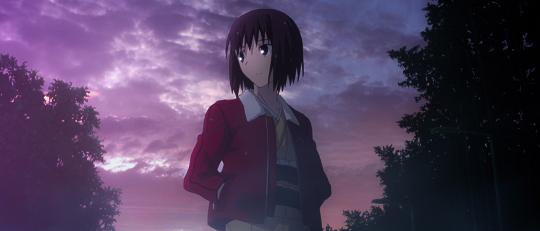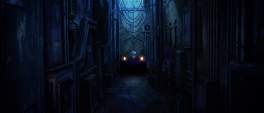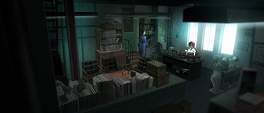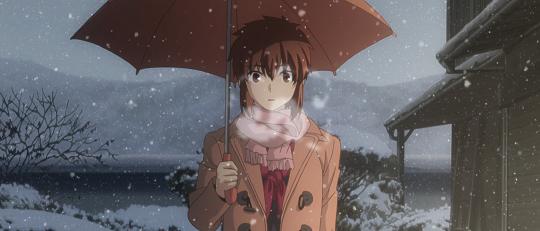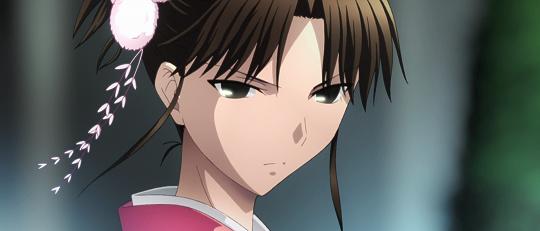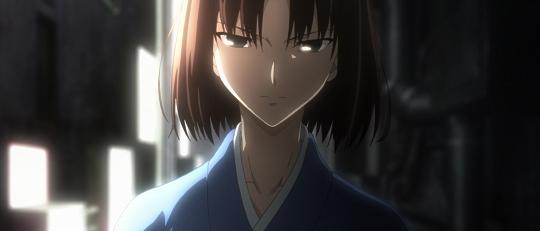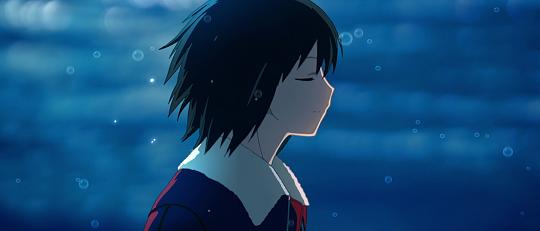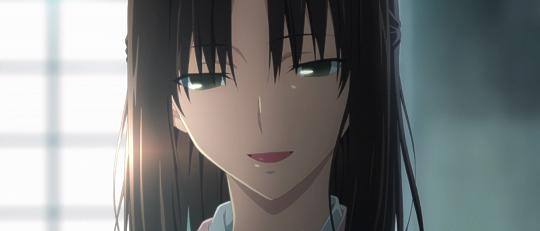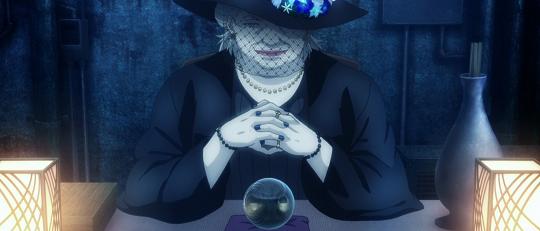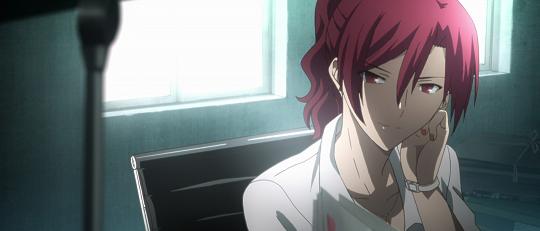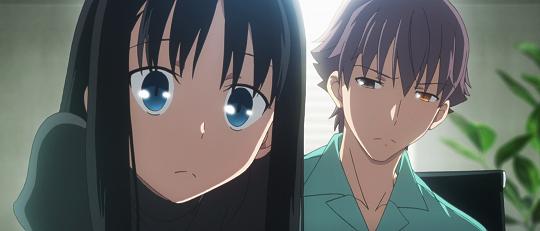Kara no Kyoukai is a bit like the suit I use for job interviews. It’s not especially well worn, nor does it sit either end of the comfort scale, but by wearing it there are certain expectations. It seems that for ufotable, now the de-facto steward of all Type Moon’s animated properties, the same can be said. It has been almost four years since the last Kara no Kyoukai (Boundary of Emptiness) film was released, three if you count the punctuation mark that the OVA in the limited edition box-set represented. Since then of course the studio has put out the well-received Fate/Zero and is on track to release a new chapter in the Fate/stay night mythos.
That contextualises where the studio sits with the release of Kara no Kyoukai: Mirai Fukin (Future Gospel), but doesn’t really adequately convey just how assured and confident this new movie’s execution is. There is a knowledge and appreciation of the characters that populate Kinoko Nasu’s work but also of the roles played by the location and themes underpinning them. It is still arrestingly beautiful and quietly unsettling that perhaps only an intrinsic understanding and time could produce.
Time itself plays a key role in the story - much more so than the prior films; however like them the chronological sequence of events is shuffled, dancing between perspectives and times to best suit the plot. Set after the events of A Remaining Sense of Pain but before Overlooking View means that Shiki has awoken from her coma and is readjusting to the world while Mikiya has not yet begun to perfect his pirate lingo. Now a serial bomber is on the loose and has taken a special interest in Shiki.
That is the story however it is comprised of three main threads - Shiki’s cat-and-mouse game with the bomber, Mikiya’s meeting with a girl with future sight, and the present and future story of the bomber himself. All of them cross-over and bleed together but there is a very pronounced split between the events of the “present”, that is taking place during Arya Souren’s story of movies one through seven, and the future when, as is an anime staple, all of the characters have different haircuts. The result of this is that the bomber’s story feels like an appendix to a book, stuffed with obvious fan pleasing points of note but not really what you came for in the first place.
There is plenty of that of course and the main story plays like a kind of greatest hits from the other seven films. Reien Girls Academy and a fresh faced Azaka bookend the story, while the Ahnen Erbe cafe is the setting for the majority of Mikiya’s story who, as he is wont to do, begins by picking up / seducing / quietly kidnapping a schoolgirl he finds on the street. Touko’s office meanwhile is still in business and, true to form, her aurally pleasing explanations of abnormalities and the supernatural fulfill the “talking heads” quota. Shiki thought is the spine of all the stories and also the executor of its climactic action set piece which manages to be ludicrous in all the right aways without breaking her stoic demeanour.
This is, after all, fundamentally quite silly and behind all of the discussions of the different types of prognostication is an explosives expert who can see the future going after a girl with glowing eyes (oh but what eyes) wielding a short sword. By virtue of being only a single film, and the primary thread only an hour long, the story here doesn’t have the weight or poignance that the main arc managed. The themes aren’t as bold, the violence is more subdued and the conclusion lacks punch. This is without a doubt an exercise in fan service.
I am a fan though which makes this kind of pandering more then welcome. The movie could have been twice as long and more byzantine than Paradox Spiral and I would still be just as happy because it still has all the ingredients that made me fall in love with the series in the first place. Mikiya still has the same naivete to him that belies a keen mind that cuts through the miasma that would bog down other people. Shiki is still the barely restrained dervish of destruction when she smells prey. And Touko is still the whimsical know-it-all in orange who flips a switch when her glasses are on. The snow scenes are still achingly beautiful and the detail lavished on everything from the sky to the teacups is breathtaking. Shiki goes from stoic apathy in a dress kimono to calculating mother and even back to her male personality SHIKI all in ninety minutes and to the melancholy piano melodies of Yuki Kajiura.
Mirai Fukin is the kind of movie that won’t strike the same chord with anyone who hasn’t seen and, perhaps most importantly, loved the original set of films. Those who have maybe read the novels, who see a whisp of purple hair in Reien Academy and immediately think it’s Fujino, or can spot Detective Daisuke when Shiki leaps over his car, or elicit a contented sigh at the tuneful humming of “Singin’ in the Rain”, those people may just love this film as much as I did. Certainly there are criticisms, but as always with works of this caliber - that I have previously called “truly legendary” and “a monolith of quality and artistic effort” - they are comparisons with itself because nothing else can really compare. Like reuniting with old friends then, Kara no Kyoukai: Mirai Fukin is satisfying and heartening but over far too swiftly.
